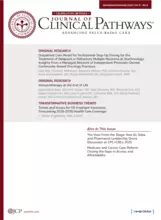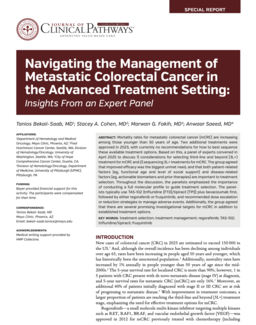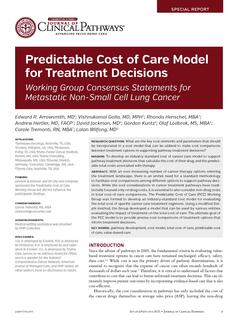Green Light, Red Flags: A New Framework for Evaluating Oncology Accelerated Approvals
Introduction
Balancing speed and scientific rigor in oncology drug approvals is essential. The US Food and Drug Administration (FDA) Accelerated Approval (AA) pathway facilitates earlier access to therapies based on surrogate endpoints that are reasonably likely to predict clinical benefit. While this pathway has expedited treatment availability, it has also raised concerns regarding the timeliness and robustness of postmarketing confirmatory trials.
Over the past 10 years, 155 oncology indications have received AA; of these, 64 (41%) are still pending conversion to traditional approval, and 24 (15%) have been withdrawn for failure to confirm benefit or meet postmarketing requirements. Despite these concerns, there is a lack of standardized, transparent metrics to assess the effectiveness of the pathway—such as time to conversion, withdrawal rates, and endpoint validation. To address this gap, Evolent developed a novel framework to evaluate the clinical value of therapies granted AA.
Materials and Methods
The proposed framework, the Clinical Benefit Index (CBI), integrates the European Society for Medical Oncology (ESMO) Magnitude of Clinical Benefit Scale (MCBS) with an Evolent-adjusted scoring system. ESMO-MCBS was selected over incremental cost-effectiveness ratio (ICER) due to the latter’s limited data on quality of life and long-term survival. The ESMO-MCBS rates noncurative therapies on a scale of 1 to 5, with scores of 4 or 5 indicating substantial benefit.
The Evolent adjustment modifies the ESMO-MCBS score by up to ±1 point per parameter based on 4 criteria: treatment intent (curative vs palliative), surrogate endpoint quality (eg, complete response rate), unmet need, and trial design.
Results
The CBI applied biliary tract cancer therapies to evaluate differentiation in clinical value. Fam-trastuzumab deruxtecan received an ESMO-MCBS score of 3. The Evolent-adjusted score was reduced to 2, due to palliative intent and a low complete response (CR) rate (<5%), with 1 point added for unmet need (no alternative FDA-approved or NCCN-endorsed therapy at the time of approval). Zanidatamab received an ESMO-MCBS of 3 and an adjusted score of 0, with deductions for palliative setting, low CR rate, and the presence of alternative treatment options.
These adjustments highlighted discrepancies between initial ESMO-MCBS ratings and real-world value assessments when contextualized within clinical and access-related factors.
Conclusion
The Clinical Benefit Index provides a pragmatic, structured approach for evaluating oncology therapies approved via the AA pathway. By combining ESMO-MCBS scores with real-world modifiers, the CBI framework offers greater transparency and consistency for use in clinical pathways and value-based care decisions.
Application of the CBI to biliary tract cancer therapies demonstrated its ability to reclassify therapies based on nuanced clinical value. For example, the adjusted score of 0 supported the exclusion of zanidatamab from Evolent pathways. Broader implementation may improve alignment between regulatory approvals, clinical benefit, and patient access in oncology.
Author Information
Authors:
K Sang Chau, PharmD, BCOP1; Justin R. Tse, PharmD, BCOP1; Amy VanGalder, PharmD, BCOP1; Terra Wonsettler, PharmD, MBA1; Andrew Hertler, MD, FACP1
Affiliation:
1Evolent
References
- U.S. Food & Drug Administration. Accelerated Approval. Updated January 24, 2023. Accessed 11 July 2025. https://www.fda.gov/patients/learn-about-drug-and-device-approvals/fast-track-breakthrough-therapy-accelerated-approval-priority-review
- Friends of Cancer Research. Accelerated Approvals in Oncology (1992-Present). Accessed 11 July 2025. https://friendsofcancerresearch.org/accelerated-approvals-in-oncology-1992-present/
- European Society for Medical Oncology. ESMO- Magnitude of Clinical Benefit Scale. Accessed 24 April 2025. https://www.esmo.org/guidelines/esmo-mcbs
















